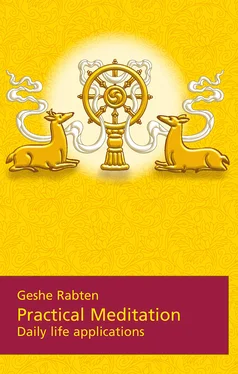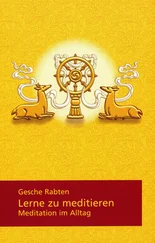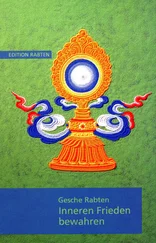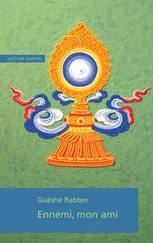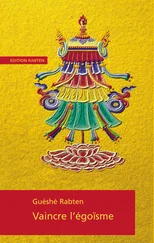Gesche Rabten - Practical Meditation
Здесь есть возможность читать онлайн «Gesche Rabten - Practical Meditation» — ознакомительный отрывок электронной книги совершенно бесплатно, а после прочтения отрывка купить полную версию. В некоторых случаях можно слушать аудио, скачать через торрент в формате fb2 и присутствует краткое содержание. Жанр: unrecognised, на английском языке. Описание произведения, (предисловие) а так же отзывы посетителей доступны на портале библиотеки ЛибКат.
- Название:Practical Meditation
- Автор:
- Жанр:
- Год:неизвестен
- ISBN:нет данных
- Рейтинг книги:3 / 5. Голосов: 1
-
Избранное:Добавить в избранное
- Отзывы:
-
Ваша оценка:
- 60
- 1
- 2
- 3
- 4
- 5
Practical Meditation: краткое содержание, описание и аннотация
Предлагаем к чтению аннотацию, описание, краткое содержание или предисловие (зависит от того, что написал сам автор книги «Practical Meditation»). Если вы не нашли необходимую информацию о книге — напишите в комментариях, мы постараемся отыскать её.
Practical Meditation — читать онлайн ознакомительный отрывок
Ниже представлен текст книги, разбитый по страницам. Система сохранения места последней прочитанной страницы, позволяет с удобством читать онлайн бесплатно книгу «Practical Meditation», без необходимости каждый раз заново искать на чём Вы остановились. Поставьте закладку, и сможете в любой момент перейти на страницу, на которой закончили чтение.
Интервал:
Закладка:
Geshe Rabten
Practical Meditation
Translated and edited by Brian Grabia

© Edition Rabten, 1801 Mont-Pèlerin, Switzerland
Original edition by Tharpa Choeling
1801 Le Mont-Pèlerin, Switzerland. 1981.
Not to be reproduced in any form
without the publishers’ consent.
eBook-Herstellung und Auslieferung:
HEROLD Auslieferung Service GmbH
www.herold-va.de
Contents
Preface Preface There is a great deal of emphasis placed on the need for meditation within the context of Buddhist study and practice. But often this practice of meditation may seem unrelated to the cares and concerns of everyday life. This need not be the case. In fact, meditation and our daily activities can be mutually beneficial if we are aware of how to integrate the two. During the summer of 1980, Geshe Rabten gave a series of talks in then Tharpa Choeling concerning the way in which we can develop a practice utilizing both formal meditation sittings and everyday activities to evolve a balanced, practical and satisfying lifestyle. Geshe presents in a clear and easily understandable way some of the essential factors involved in this transformation. It was with the intention of preserving the quality of an oral teaching, that the translator has retained that format in preparing the text. Brian Grabia (Gelong Jhampa Yeshe) Hamburg 1981
First Sunday
Second Sunday
Third Sunday
Fourth Sunday
Fifth Sunday
Monastic Institute and Publisher
Photo: Geshe Rabten
Preface
There is a great deal of emphasis placed on the need for meditation within the context of Buddhist study and practice. But often this practice of meditation may seem unrelated to the cares and concerns of everyday life. This need not be the case. In fact, meditation and our daily activities can be mutually beneficial if we are aware of how to integrate the two.
During the summer of 1980, Geshe Rabten gave a series of talks in then Tharpa Choeling concerning the way in which we can develop a practice utilizing both formal meditation sittings and everyday activities to evolve a balanced, practical and satisfying lifestyle. Geshe presents in a clear and easily understandable way some of the essential factors involved in this transformation.
It was with the intention of preserving the quality of an oral teaching, that the translator has retained that format in preparing the text.
Brian Grabia (Gelong Jhampa Yeshe)
Hamburg 1981
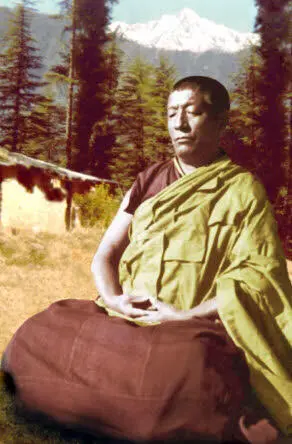
Geshe Rabten in front of his hermitage in the mountains above Dharamsala (northern India) in 1969.
First Sunday
One of the most significant questions we can ask ourselves is what is really essential in our lives. The answer is that our lives must be meaningful. Meaningful in the sense that we must eliminate suffering and ensure our future happiness. This applies equally to others and should be the focal point of our practice. Our efforts should be concentrated on benefiting ourselves and others by eliminating suffering and ensuring happiness.
In developing the capacity to benefit ourselves and others, the key factor is the mind. But this mind must be able; lacking ability we will fall short of our goal. This mental capacity must be developed through meditation. Furthermore, it is important that the meditation itself is done properly. By means of correct meditation, the ability and strength of the mind will develop and increase.
In order to be able to meditate we must begin by studying; it is not as if study and meditation are unrelated. Study aids in developing a strong and effective practice. Meditation usually refers to the act of repeatedly concentrating the mind on a virtuous object to gain familiarity with it. Hence, we can speak of meditation as a process of becoming accustomed to a virtuous object or attitude. In the Tibetan language meditation and becoming familiar with an object have the same connotation.
At present, we listen to Dharma teachings and make an effort to put them into practice, but we do not really have a very powerful or effective practice. The reason for this lack of effect is related to the fact that as human beings we have an uncontrolled mind. Yet in order to use this mind as we desire, we must first gain control of it. At present, rather than being in control of our minds, our minds control us. They, in turn, are under the influence of mental distortions and, as a result, all of our actions are conditioned by these distortions. Thus, the actual cause of our problem is the fact that we are controlled by distorted minds. As a result, we are never able to fulfill our desires. The point of meditation is to bring our mind under control. There are two types of meditation used to develop mental control: analytical and concentrative meditation. I will now speak of how we should meditate and what is necessary for effective meditation. This may be familiar to those of you who have previously begun meditating.
It is first important to clearly understand, through study, what is involved in meditation. There are many aspects of Buddhist teaching and practice, but when we begin to meditate, we should concentrate on one particular aspect. If we jump from practice to practice we will never progress. Instead, we should choose a particular meditation practice and concentrate on that, doing our other commitments rather quickly and spending most of our time on the principal practice. If we constantly change our practice after becoming dissatisfied this will become habitual, we will never accomplish our aim and in the process will waste considerable time. Having chosen a practice and begun meditation, difficulties will arise, but at that time we must make additional effort and not simply abandon our practice. If we persevere, we will become accustomed to the practice and it will become easier. It is also possible that occasionally we may become confused about our object of meditation. Having initially made some progress, interferences set in and it all begins to seem fruitless. Here again, we must apply additional effort and carry on.
Another important factor in meditation is that we set ourselves a practice schedule which we can follow regularly each day. If we can meditate every day at the same time or times, we will grow accustomed to this period as our meditation session and this too will facilitate our practice. It is also advisable to begin meditating with short sessions. We should stop each session while we are feeling positive about it, and not wait until we are bored or tired. If we do this, we will find ourselves looking forward to our next session and our desire to meditate will continue. In addition, if we can pass from one satisfying session to another, our practice will naturally become more effective. On the other hard, if we meditate too long, our minds may become tired, unclear and confused. If we continue to sit in such a state, we will not be able to develop stability or control. If we meditate until we are bored, we will have little or no desire to meditate at the time of our next session. Just to see our cushion will cause aversion. We must be very skillful in leading ourselves into meditation practice, well aware of both what should and should not be done. The result will be effective and satisfying sessions. As we gradually become accustomed to the practice our sessions can easily be lengthened.
Читать дальшеИнтервал:
Закладка:
Похожие книги на «Practical Meditation»
Представляем Вашему вниманию похожие книги на «Practical Meditation» списком для выбора. Мы отобрали схожую по названию и смыслу литературу в надежде предоставить читателям больше вариантов отыскать новые, интересные, ещё непрочитанные произведения.
Обсуждение, отзывы о книге «Practical Meditation» и просто собственные мнения читателей. Оставьте ваши комментарии, напишите, что Вы думаете о произведении, его смысле или главных героях. Укажите что конкретно понравилось, а что нет, и почему Вы так считаете.
